
Bee Gardens
Class: Insecta, Order: Hymenoptera
Beloved residents in our gardens, bees are the most effective pollinators.
The electrostatically charged hairs on their body and legs called scopa pick up pollen to be inadvertently carried from flower to flower. Typically, bees have more hair than wasps or flies making them better pollinators.
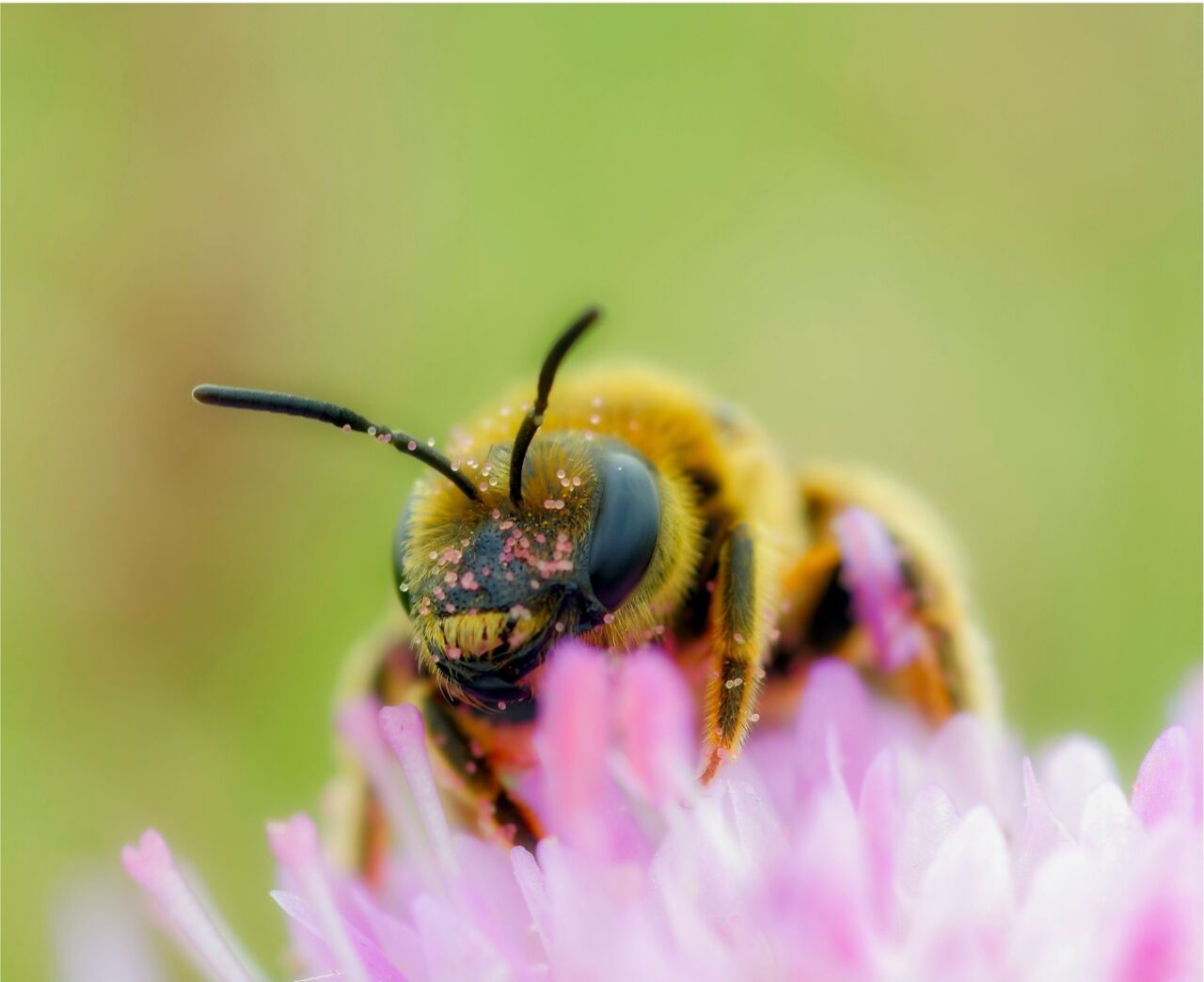
A bee's diet comes entirely from flowers
Nectar, a carbohydrate, is consumed by adults while protein and nutrient-rich pollen is eaten by both adults and larvae. Some species of bees are specialists, meaning they only feed on certain flowers. For example, squash bees feed almost exclusively on cucurbit flowers. Other bees are generalists, visiting most types of flowers in a given area.
90% of bees are solitary
Although most well-known bees such as honey bees and bumble bees live in large social colonies, 90% of all bee species are solitary, nesting in either tree cavities or underground burrows. Pennsylvania is home to 437 species and there are at least 4,000 species of bees in North America representing six of the seven families: Andrenidea, Colletidae, Melittidae, Halictidae, Megachilidae, and Apidae.
Those with bee gardens will enjoy a great diversity of bees, as they come in a variety of shapes, sizes, and colors. Bees are not aggressive when feeding on flowers and can be safely viewed from a short distance. Planting flowers that provide optimal nutrition for bees supports their local populations, and in turn, supports the entire ecosystem.
Plants to Support Bees
Serviceberry
Amelanchier canadensis
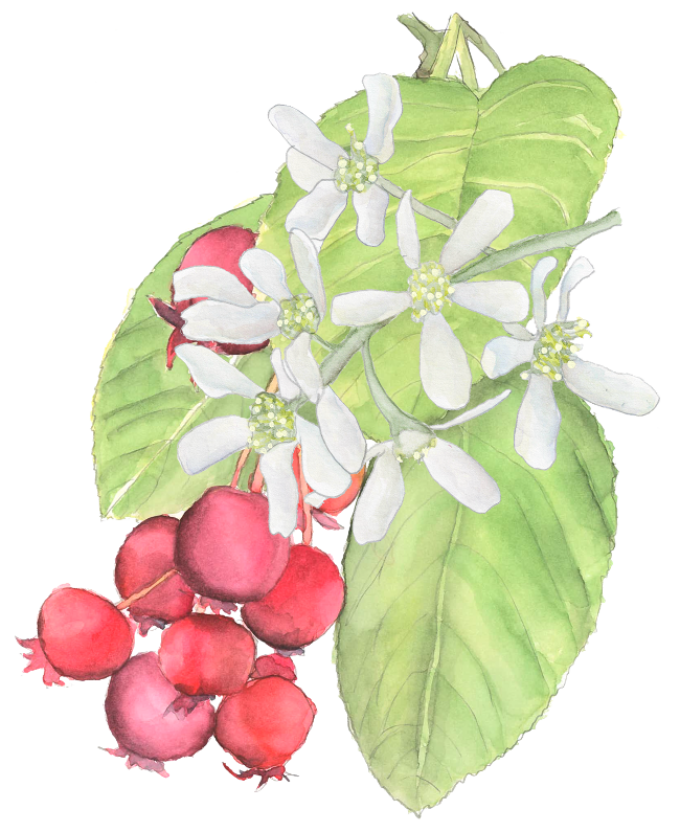
Floral Phenology
- J
- F
- M
- A
- M
- J
- J
- A
- S
- O
- N
- D
Type Deciduous Tree
Sun
Water
Size 25' - 30' tall, 15' spread
Soil NeutralSlightly AcidicAcidic
Tolerances Clay
Buttonbush
Cephalanthus occidentalis
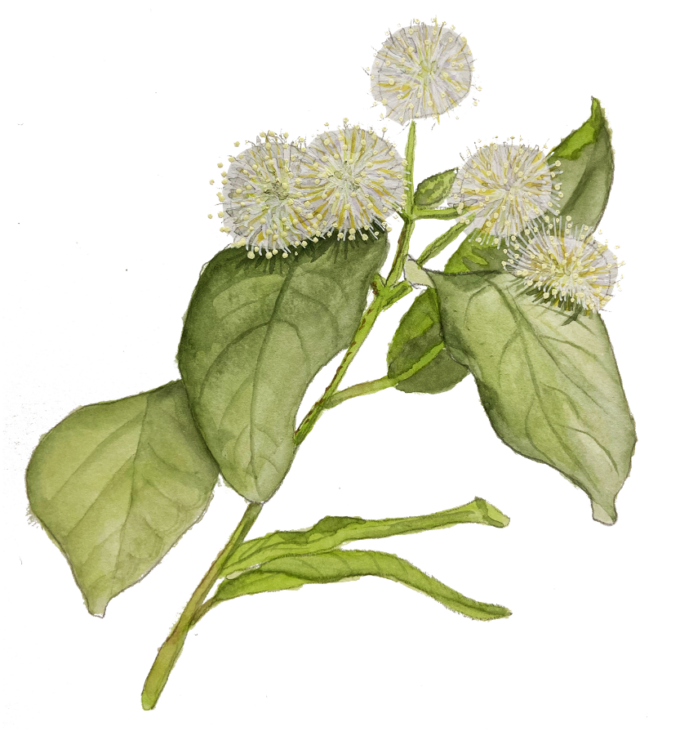
Floral Phenology
- J
- F
- M
- A
- M
- J
- J
- A
- S
- O
- N
- D
Type Deciduous Shrub
Sun
Water
Size 5'-12' tall, 8' spread
Soil AlkalineNeutralAcidic
Tolerances DroughtFlooding
Eastern Redbud
Cercis canadensis
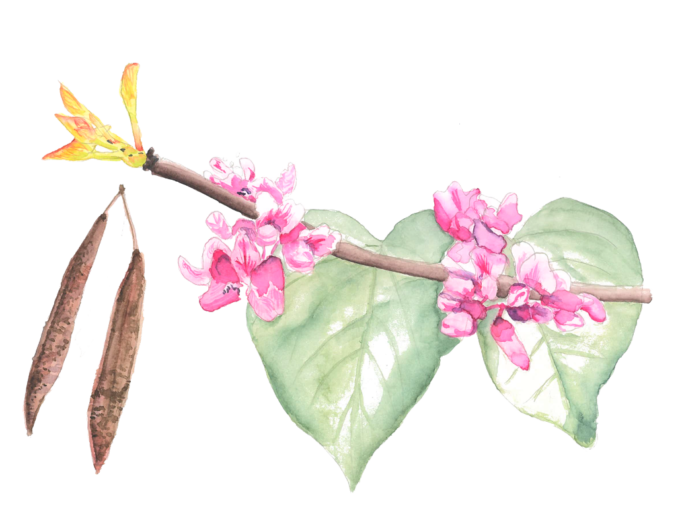
Floral Phenology
- J
- F
- M
- A
- M
- J
- J
- A
- S
- O
- N
- D
Type Deciduous Tree
Sun
Water
Size 20'-30' tall, 30' spread
Soil AlkalineNeutral
Tolerances ClayDeer
Spring Beauty
claytonia virginica
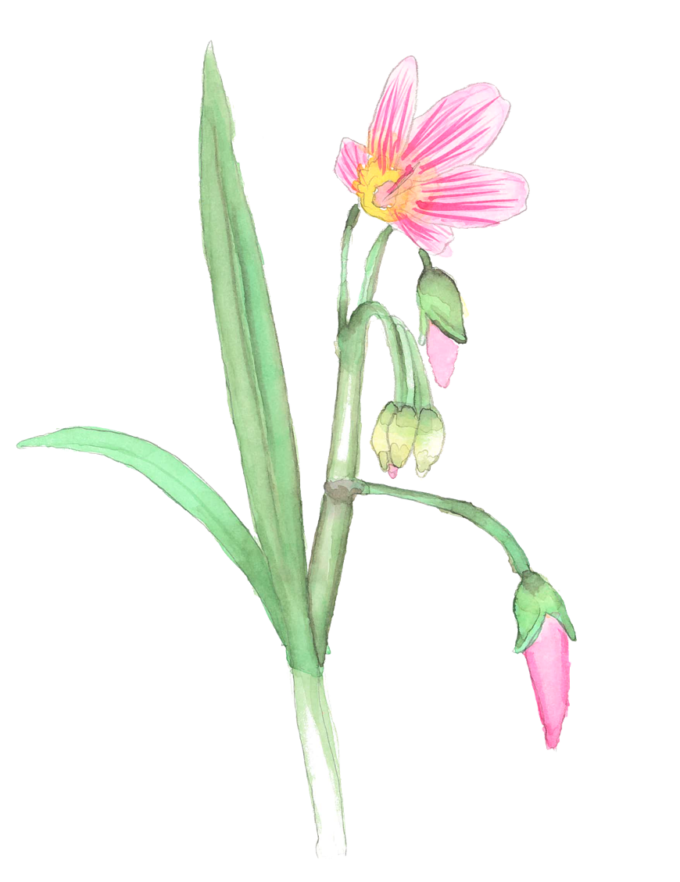
Floral Phenology
- J
- F
- M
- A
- M
- J
- J
- A
- S
- O
- N
- D
Type Herbaceous Perennial
Sun
Water
Size 6"-18" tall and spread
Soil NeutralAcidic
Tolerances DroughtFloodingSalt
Common Cow Parsnip
Heracleum maximum
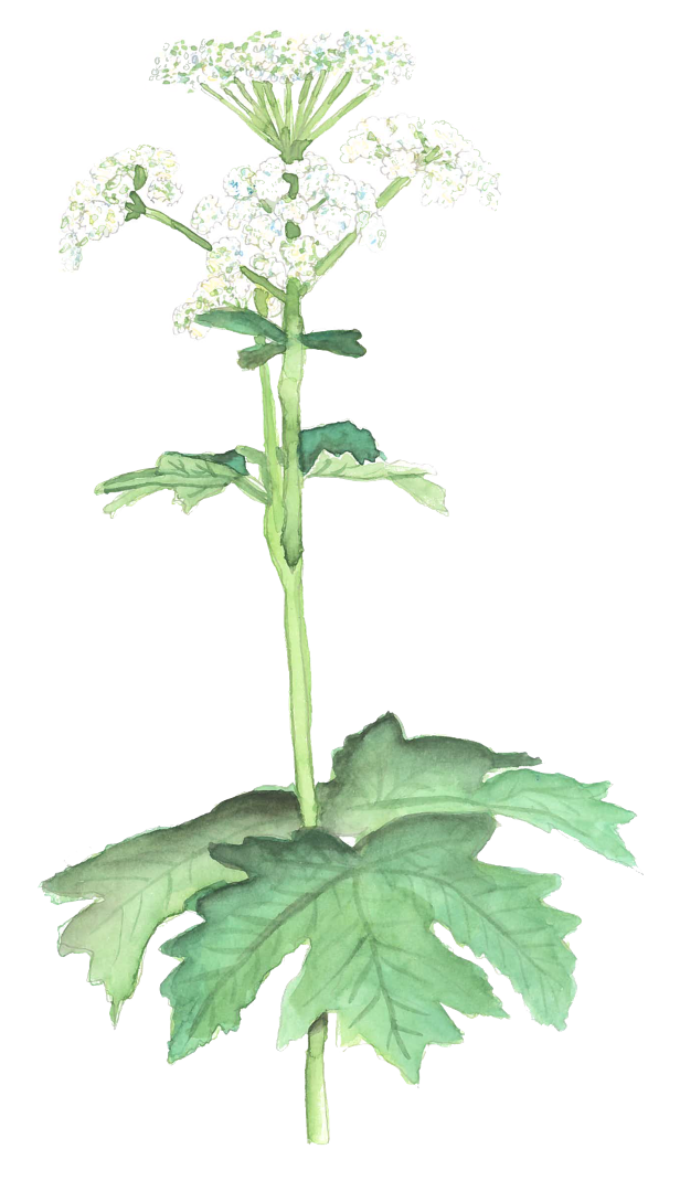
Floral Phenology
- J
- F
- M
- A
- M
- J
- J
- A
- S
- O
- N
- D
Type Herbaceous Perennial
Sun
Water
Size 3'-5' tall, 2'-3' spread
Soil AlkalineNeutralAcidic
Tolerances Clay
Clustered Mountainmint
Pycnanthemum muticum
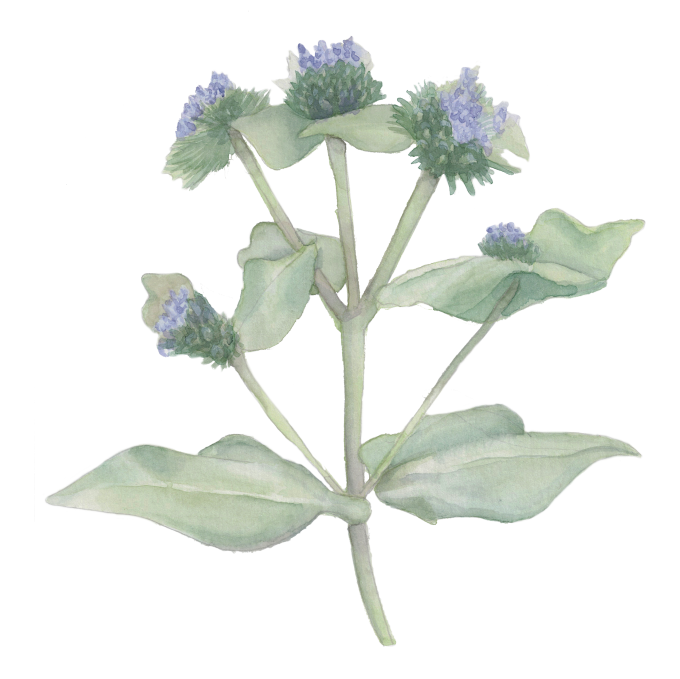
Floral Phenology
- J
- F
- M
- A
- M
- J
- J
- A
- S
- O
- N
- D
Type Biennial
Sun
Water
Size 2'-3' tall, 3'-4' spread
Soil NeutralAcidic
Tolerances DroughtErosion
Frost Aster
Symphyotrichum pilosum
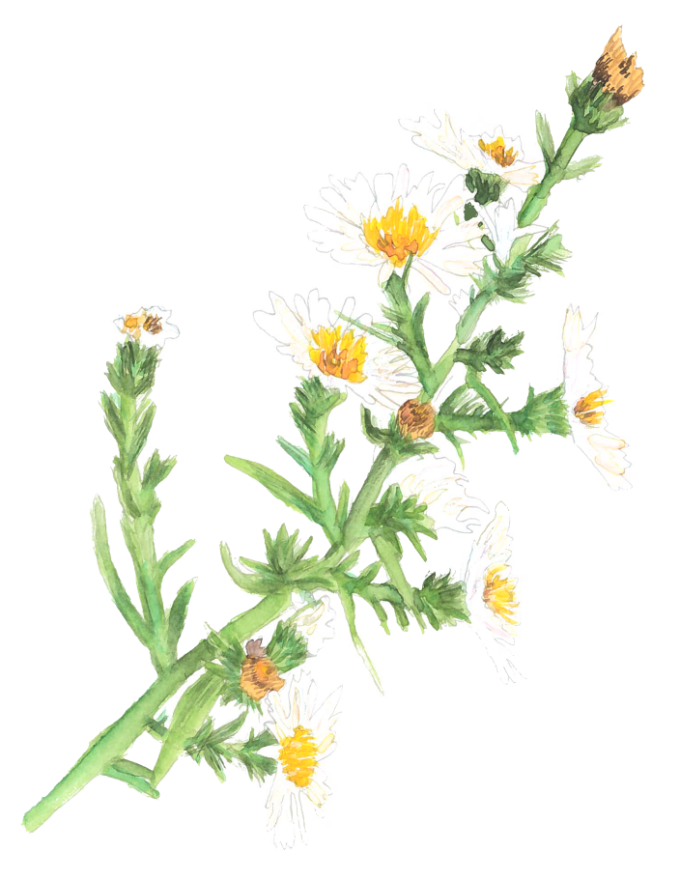
Floral Phenology
- J
- F
- M
- A
- M
- J
- J
- A
- S
- O
- N
- D
Type Herbaceous Perennial
Sun
Water
Size 3'-5' tall, 2'-4' spread
Soil NeutralAcidic
Tolerances DroughtErosionFrost
American Blue Vervain
Verbena hastata
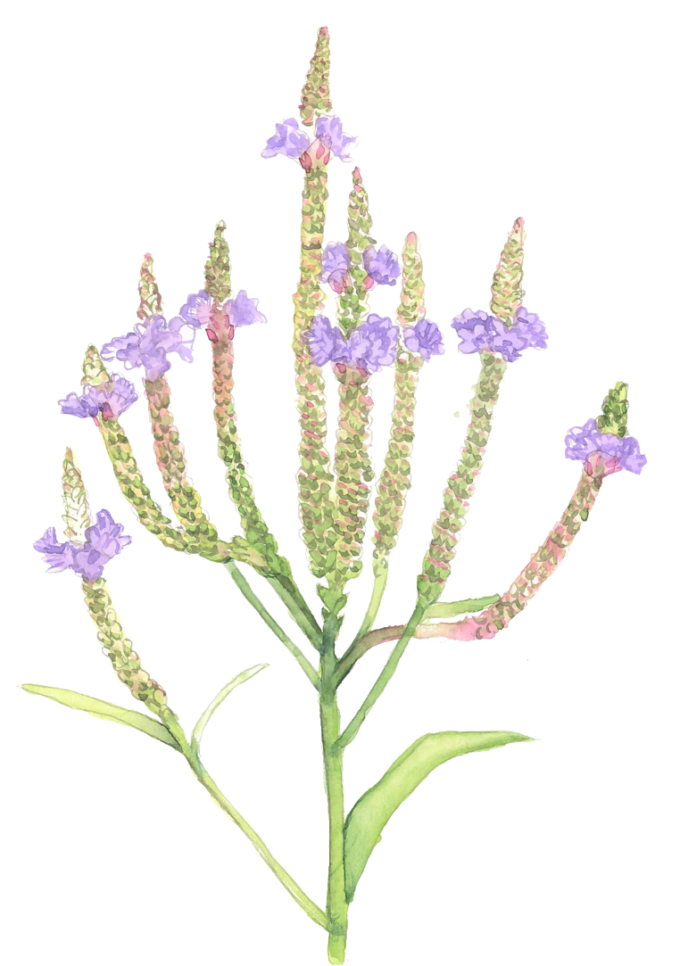
Floral Phenology
- J
- F
- M
- A
- M
- J
- J
- A
- S
- O
- N
- D
Type Herbaceous Perennial
Sun
Water
Size 1'-2' tall, 12"-18" spread
Soil NeutralSlightly Acidic
Tolerances DeerDrought
Hoary Verbena
Verbena stricta
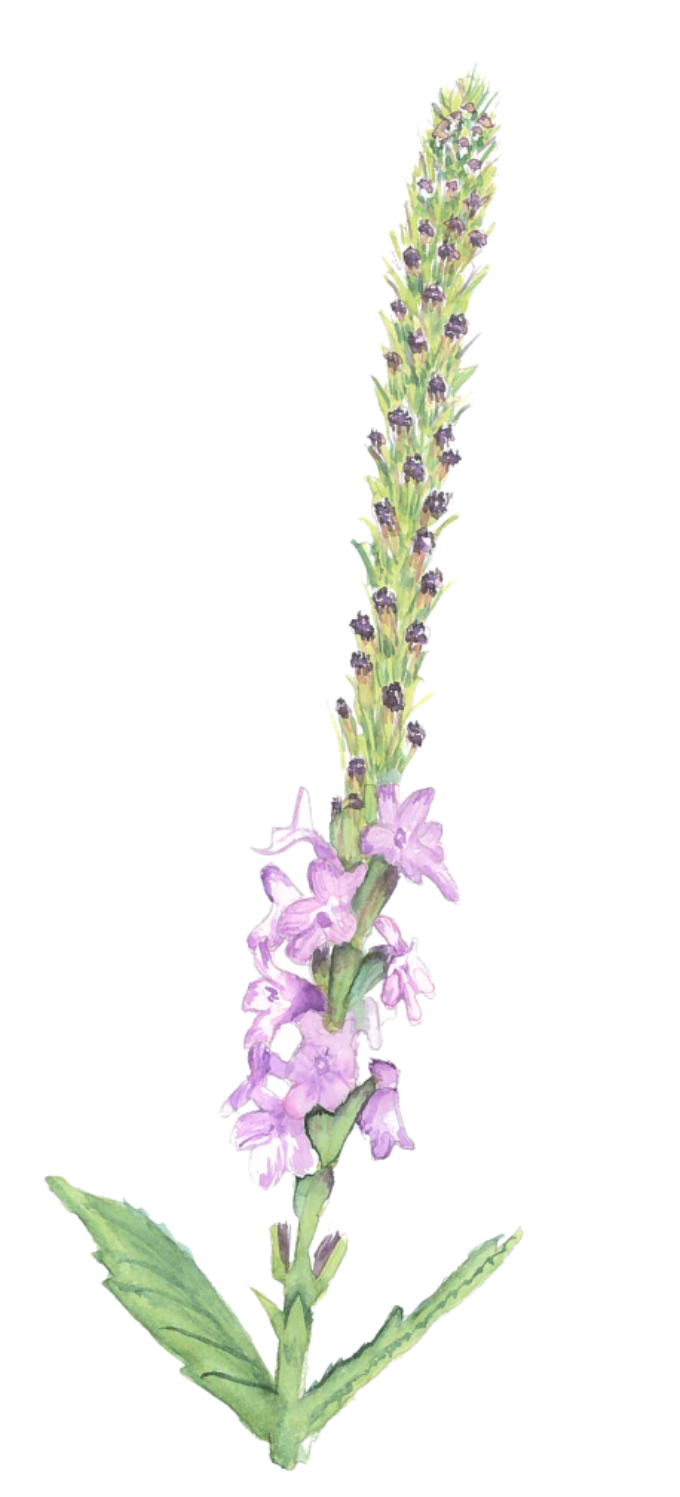
Floral Phenology
- J
- F
- M
- A
- M
- J
- J
- A
- S
- O
- N
- D
Type Herbaceous Perennial
Sun
Water
Size 2'-3' tall, 1'-1.5' spread
Soil Alkaline
Tolerances DeerDroughtRabbit
